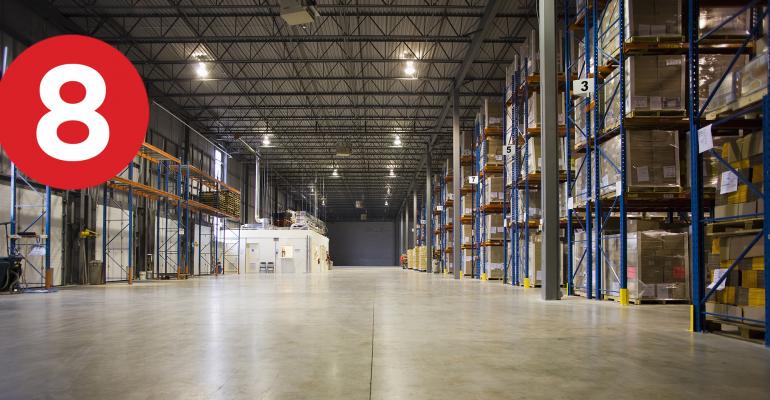- Bank Branches, Once Retail Staple, Closing by the Hundreds “Once proud symbols of Main Street commerce, and, in recent decades, urban conveniences for busy professionals, never mind go-to space fillers for developers and landlords, the consumer bank branch is gradually becoming extinct, as relevant to today’s digital financial world as the pneumatic bank teller tube or traveler’s checks.” (Commercial Observer)
- ‘High-Rise Hell’: N.Y.C. Skyscraper’s Elevator Breakdowns Strand Tenants “Since November, the skyscraper has been plagued by long elevator outages that have turned daily life upside down and trapped residents with mobility issues inside their apartments. Elevator service is unpredictable and often nonexistent, for hours at a time, above the 15th floor. The elevators that service the lower floors have continued to work, even as the outages have grown more frequent in the last two months.” (The New York Times)
- Investors jump in early in industrial sector “Traditionally, investors were loath to take on development and leasing risk, preferring to buy warehouses when completed and with tenants in place. But industrial rents are rising quickly — with first-year comparable rents up 10.8% in 2021 from a year earlier, according to CBRE research — and consistent growth in leasing rates is causing investors to be less concerned with those risks.” (Pensions & Investments)
- Local real estate firms, schools and nonprofits are hoping to interest youth in real estate as a career before college: ‘Access and exposure matters.’ “Urban Alliance, a nonprofit internship program for high school youth, provides job skills training and mentoring. Its latest program, Property Management Pathway, allows high school seniors to choose either leasing or maintenance and earn professional credentials and certifications in those areas.” (Chicago Tribune)
- From hotel lobbies to warehouses: This R.I. startup rents empty real estate for pop-ups “Coming out of the pandemic in Rhode Island, Lee saw vacant storefronts and a rich downtown that needed to be brought back to life. With her experience in IT and watching her father build a market of his own, Lee rebranded her company “PopUp Rhody,” as an Airbnb for businesses that needed space for popups and events.” (Boston Globe)
- America’s inflation problem, explained to the extent it is possible “There are certain factors widely agreed upon that we’ve been hearing about for months: supply chain woes, rising oil prices, shifting consumer demands. These concerns have hardly subsided. But there are other arenas where there’s more disagreement, such as the role government stimulus has played in increasing prices, and the possibility that corporate greed is an important factor.” (Vox)
- Biden to Propose New Minimum Tax on Wealthiest Americans “The proposal would affect fewer than 20,000 households, and it would apply only to those who don’t pay at least 20% in tax on a combination of income as typically defined and their unrealized gains on unsold assets such as stocks and closely held businesses. The plan would generate roughly $360 billion in revenue over 10 years, according to a White House fact sheet released in advance of Monday’s full budget proposal.” (The Wall Street Journal)
- Family Dollar and Dollar Tree workers describe stores as 'unhygienic and disgusting,' with rodents taking shelter in stock rooms that are stuffed full of boxes “Some communities are now threatening to boycott these discount chains and saying that they're putting shoppers at risk. Dollar store chains are growing at a rapid rate in the US and are often criticized for driving out competitors in local communities by undercutting competitors on price, which means that in some areas, they are the only places to shop.” (Insider)
0 comments
Hide comments





